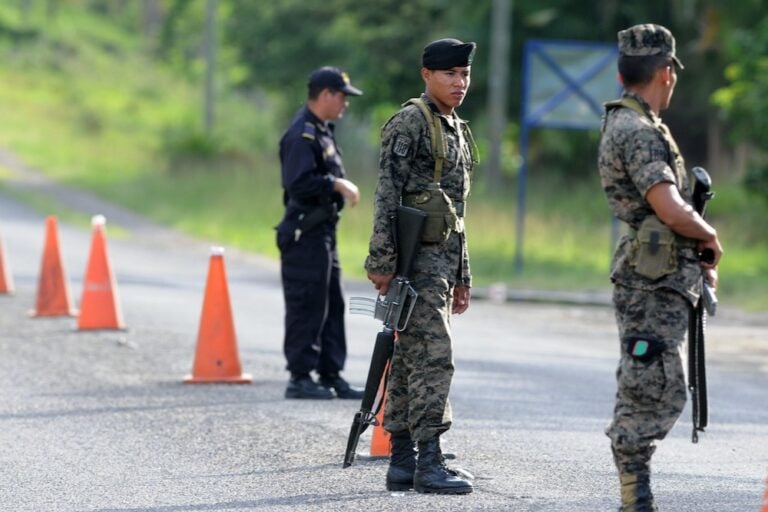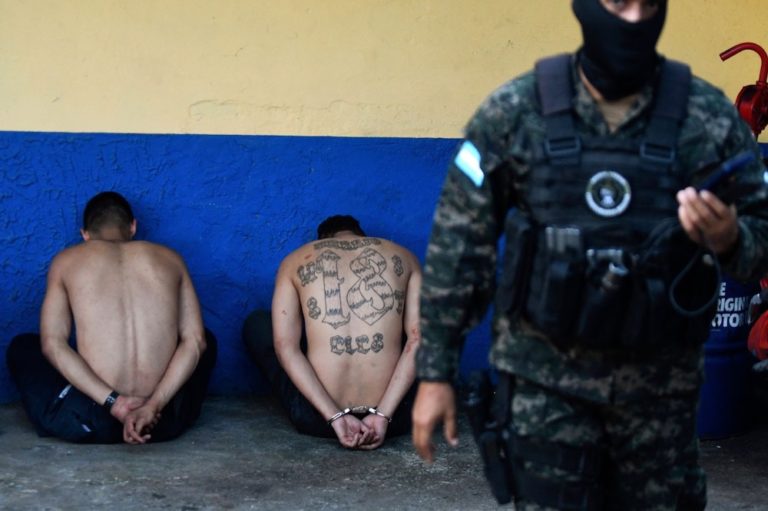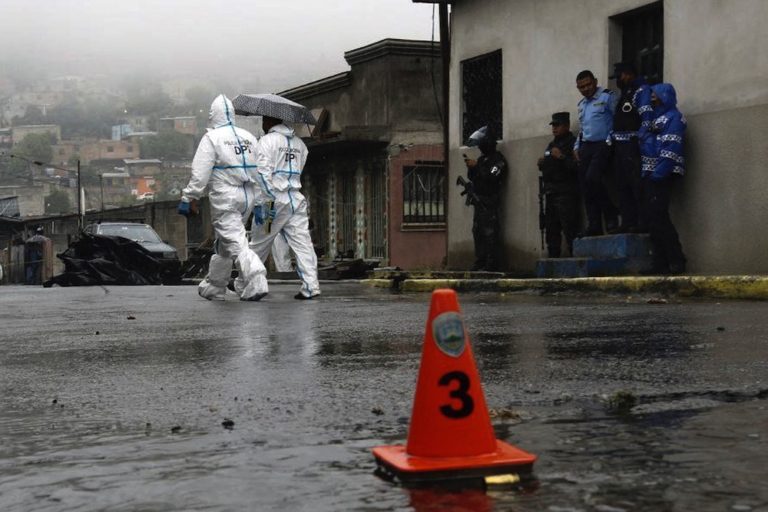The Honduran government is putting human rights activists at risk by failing to repudiate dangerous remarks by a senior military officer. An army colonel recently claimed that Annie Bird, co-director of the US-based nongovernmental organization Rights Action, was working to destabilize the Bajo Aguán region, where land disputes have led to violence.
The Honduran government is putting human rights activists at risk by failing to repudiate dangerous remarks by a senior military officer, Human Rights Watch said today. An army colonel recently claimed that Annie Bird, co-director of the US-based nongovernmental organization Rights Action, was working to destabilize the Bajo Aguán region, where land disputes have led to violence.
The commander of Operation Xatruch III, a military-police task force based in the Colón province, which includes Bajo Aguán, publicly accused Bird of destabilizing the area by “questioning the methods of the Honduran justice system” and making false claims about security forces operations. On December 12, 2013, the newspaper La Tribuna quoted Col. German Alfaro Escalante as saying: “We are in the process of investigating a complaint against a supposed American named Annie Bird, who is going around doing destabilizing work here in the Aguán sector, meeting with various campesino leaders.” Alfaro’s comments have been reproduced in national media, accompanied by photos of Bird, a US citizen.
“In Honduras, where rights advocates and community leaders have been assaulted and even killed for their work, the colonel’s accusations show a reckless disregard for a longtime activist’s safety,” said José Miguel Vivanco, Americas director at Human Rights Watch. “President Porfirio Lobo and the defense minister need to make clear that the military has no business investigating complaints against activists, let alone smearing them in the media.”
La Tribuna reported that Col. Alfaro said that Bird had pressured campesinos (small-scale farmers) in the region to rebel against security forces.
The Bajo Aguán region of northern Honduras has been the setting for long-running, often violent, land disputes, many stemming from changes to the country’s agrarian law in 1992. Large tracts of territory in the region have been contested between campesino groups and agro-industrial businesses, which mostly cultivate African palm oil. According to a report by the National Human Rights Commissioner of Honduras, 92 people were killed in the land disputes in Bajo Aguán from 2009 through 2012.
Bird has reported on human rights issues in Honduras for 12 years, and has written several reports on the country for Rights Action.
Bird told Human Rights Watch that she considered Col. Alfaro’s statements to be a response to her efforts to document recent abuses alleged to have been committed by government security forces. On December 11, Bird accompanied a group of local people to the government human rights prosecutor’s office to report alleged abuses by members of Xatruch task force, which is officially assigned to bring security to the region. On December 10, she had given an interview to a local radio station in which she described her work to document abuses and report them to international bodies.
An article on the colonel’s comments, published online, has attracted comments from readers that include death threats against Bird.
Col. Alfaro’s allegations against Bird followed similar attacks leveled in a February 18 news release from the Xatruch task force. The news release accused prominent campesino leaders, including Yoni Rivas and Vitalino Alvarez, of carrying out a “systematic and well-planned campaign of misinformation” to “denigrate” the task force through false accusations that “damage the image of the Honduran nation.” The task force statement called on the “hard-working population of Colon” to organize against a “minority group,” that it said was provoking instability and disrespect for the law. The statement followed allegations by the campesino organizations of a campaign of violence against them, as part of the ongoing land disputes.
Human rights defenders in Honduras have frequently been subject to threats and violence, Human Rights Watch said. Following the September 2012 killing of a prominent human rights defender and lawyer, Antonio Trejo Cabrera , the UN high commissioner for human rights, Navi Pillay, said: “There is a menacing climate of insecurity and violence in Honduras, and human rights defenders have been targets of threats, harassment, physical assault, and murder. The impunity that surrounds these violations is unacceptable.” The high commissioner called on the government of Honduras to “urgently adopt measures to address the vulnerability of human rights defenders.”
The United States allocated over US$50 million in security aid to Honduras from 2010 to 2012 through the Central America Regional Security Initiative (CARSI) – an ongoing program to provide security aid to countries in the region – as well as nearly US$17 million in US Defense Department security assistance in 2011 and 2012. US legislation granting military and police aid to Honduras states that 20 percent of the funds will be available only if the US State Department reports that the Honduran government has met several human rights requirements.
“Given its ongoing cooperation with Honduran security forces, the US government should use all the tools at its disposal to call a halt to verbal attacks on activists by senior Honduran military officials,” Vivanco said. “Whether directed at human rights defenders or campesino leaders, such accusations only add to a climate of fear and intimidation.”


